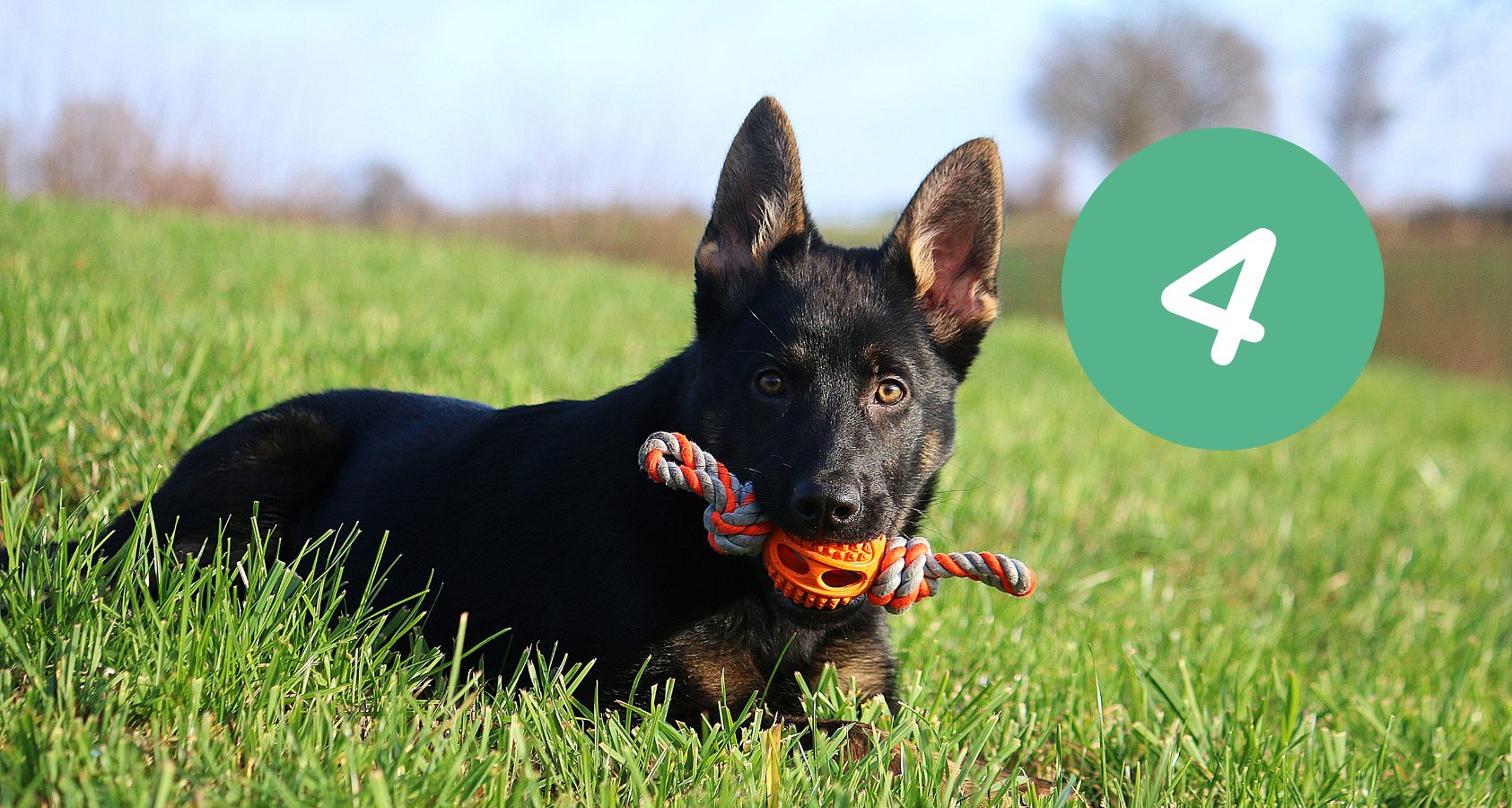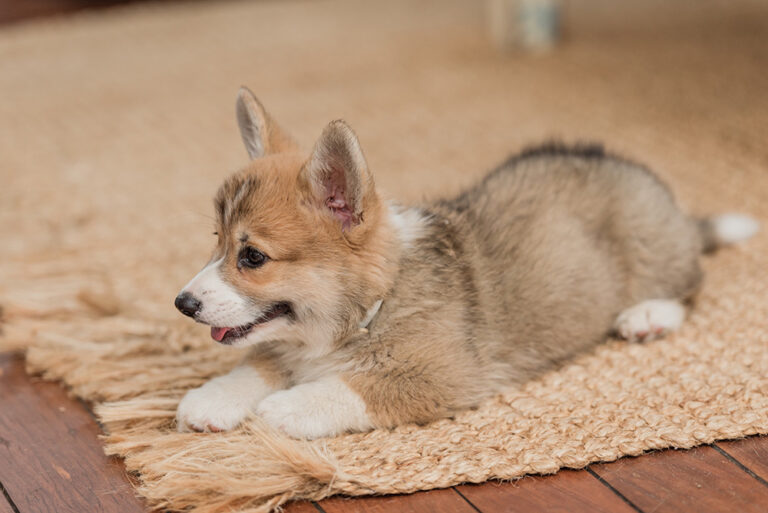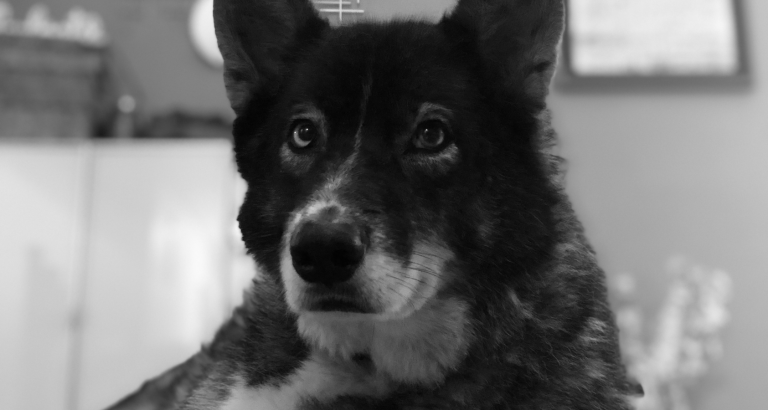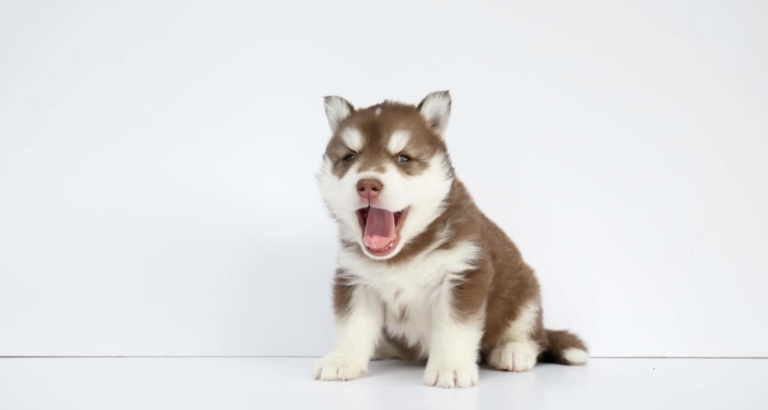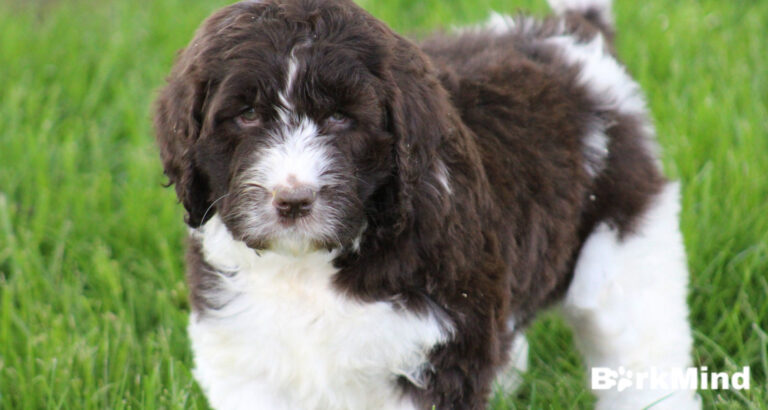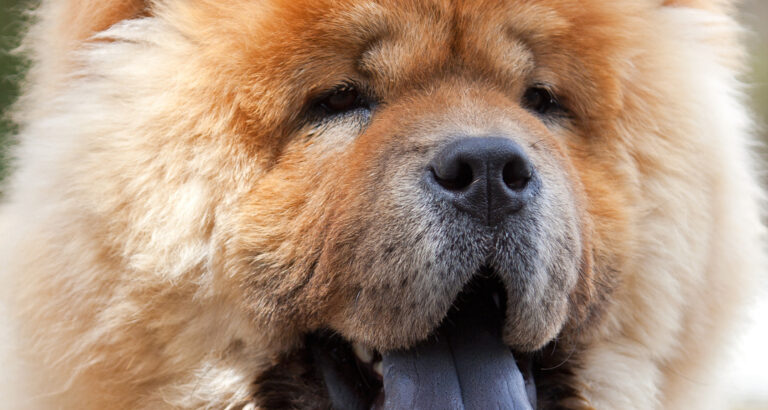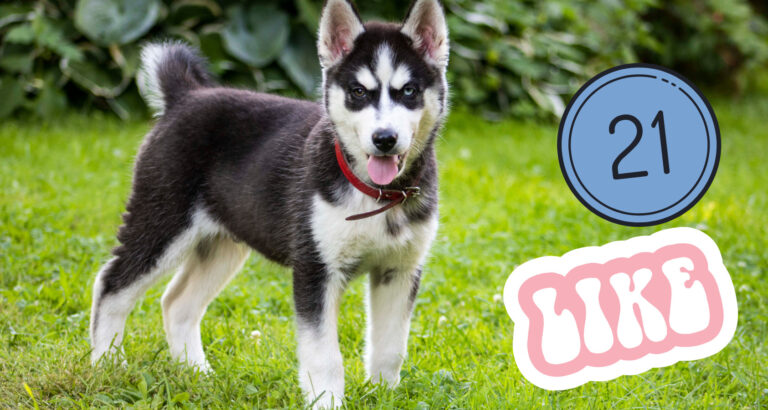A Complete Guide On 4-Month-Old German Shepherds
Last updated on March 20th, 2023 at 07:54 pm
Reading Time: 8 minutesThis post may contain affiliate links. If you click and buy we may make a commission, at no additional charge to you.
Everything You Need To Know About 4-Month Old German Shepherds
German shepherd puppies are almost as cute as they are clever. But because they’re so active, you need to be on top of their feeding and exercise requirements from the get-go. These feisty, fun-loving pups require a lot of attention, but that doesn’t mean they aren’t worth it. In fact, training your German shepherd puppy will help him grow into a happy and healthy adult dog. Which is something you want for a loyal companion for many years to come.
In this article, we’ll cover everything you need to know about 4 month old German Shepherds. From their feeding diet and exercise requirements to how they play and interact with other people and other animals.
Let’s dive in!
What to Know About German Shepherds at 4 Months Old
German shepherds are intelligent and loving dogs who thrive on a busy life. But when it comes to their feeding and exercise requirements, 4 month old German Shepherds are more active than their older counterparts. As a result, you’ll need to be more diligent than ever to keep your pup healthy. At 4 months old, German shepherds are still growing and developing, so you’ll want to communicate with your veterinarian about any concerns you have. Next, we’ll cover the average weight, height, feeding requirements, exercise requirements, how much sleep they get, and more.
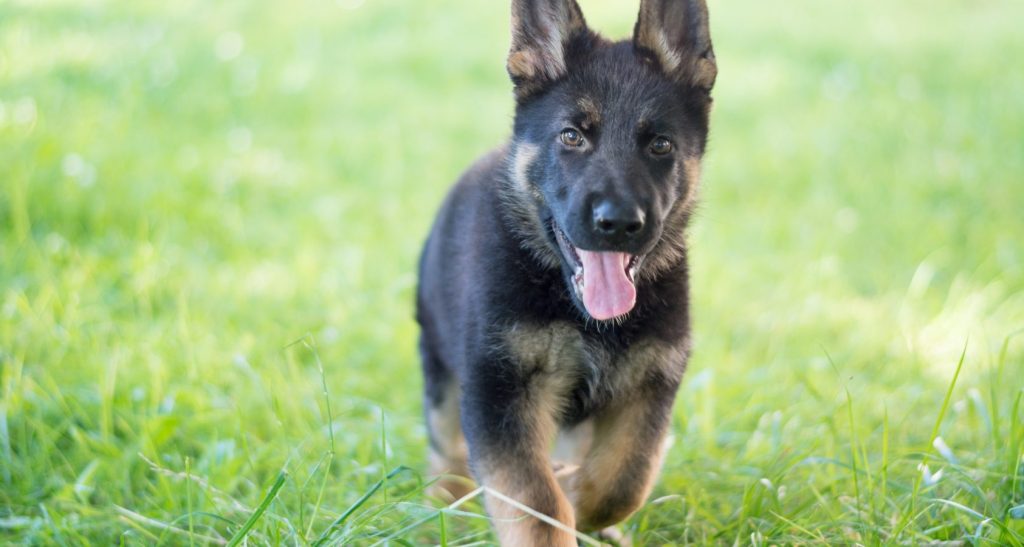
Average Four-Month-Old German Shepherd Weight?
While German shepherds have a wide range of weights, the average 4-month-old German shepherd puppy is around 35 to 40 pounds.
If you have a larger or smaller dog, it’s important to discuss your pup’s weight with your veterinarian to ensure they’re getting appropriate care. German shepherds are very active, and a high-energy dog can put extra pressure on their joints. If your dog is overweight, it can lead to a host of health issues, including joint issues and even diabetes. If your dog is a bit on the heavier side, make sure to feed him fewer calories and exercise him more often. And of course, talk to your vet if you aren’t sure if your German shepherd is in good weight.
How Tall Do 4-month-old German Shepherds Get?
German shepherd puppies grow quickly, which means they’re likely to hit their adult height a little earlier than usual. Let’s say at 4 months, your pup will be around “11 – 14” inches tall. While your German shepherd puppy is growing, you’ll also notice that he develops and expands his muscles.
This is normal, and it’s part of your dog’s personality to be strong, and in control. What’s even more fun is that your German shepherd dog will grow even taller and leaner over time. By 5 months old, he’s likely to be “14 – 16” inches tall, and he’ll continue to develop and mature into a healthy and strong adult dog from there.
How Much Sleep Do 4-month-old German Shepherds Need?
If your 4-month-old German Shepherd is a healthy puppy, he’ll need a lot of sleep to continue being active and happy. Typically, German Shepherd puppies at around 4 months get between 10 and 12 hours of sleep a day. If your dog isn’t getting enough sleep, you’ll notice it based on his mood and attitude. He’ll also be less active, which will negatively affect his health. If you notice that your 4-month-old dog isn’t getting enough sleep, we recommend giving him a break from activities.
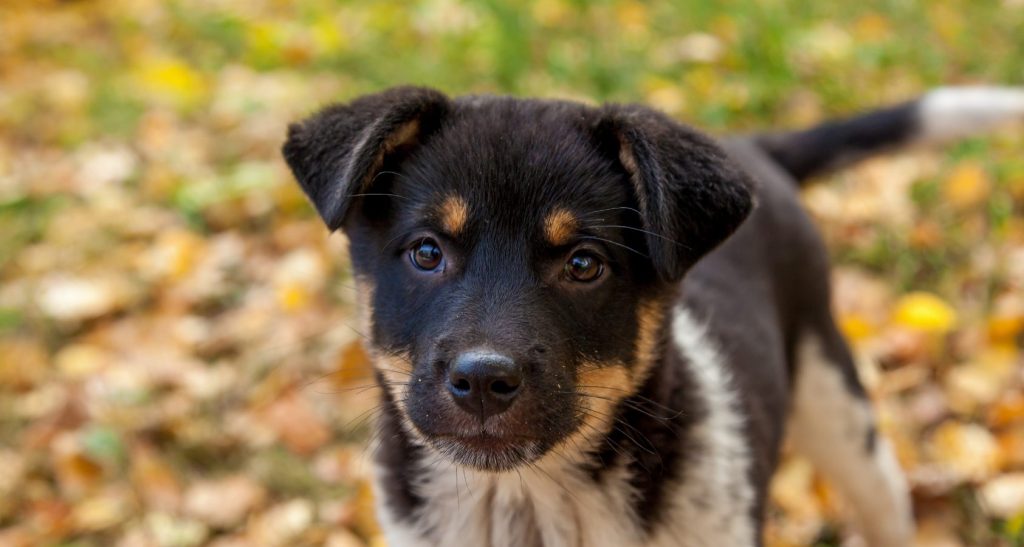
German Shepherd Feeding Requirements at 4 Months
As dogs get older and are more active, their feeding requirements increase. German Shepherds are an active breed, so you don’t need to dramatically alter your dog’s daily diet to a point of rarely feeding. Just make sure you provide your 4-month-old German Shepherd with plenty of quality feed. We recommend feeding your German shepherd a high-quality dog food with plenty of protein and calories.
Avoid cheap dog foods, which are typically low in nutrients and full of fillers. You should also feed your dog once or twice a day full meals. If you feed him too much at once, he’ll be overfed, which will lead to indigestion and excess fat in his body.
Grooming A Four Month Old German Shepherd
Groom your puppy every 2 weeks to keep his/her coat tangle-free and smelling fresh. Invest in a grooming kit to keep it easy and hassle-free. Brush your pup every morning, before you go to work. If you live in a humid area, your pup will need to be bathed regularly too. This isn’t a big deal if you live in a warm area, but if you live in a colder climate, you may have to bathe your puppy twice a month. If so, keep it simple.
When you bathe your pup, just use a mild shampoo and sponge him/her dry after. Apply an anti-fungal spray like Head and Shoulders to keep your German shepherd puppy’s coat clean and free of fungus. It’s pretty simple when it comes to grooming these adorable puppies.
How Much Exercise Do 4-month-old German Shepherds Need?
Now that your 4-month-old German shepherd is a bit older, he’ll need more exercise. This can help him stay fit and healthy, which is important as he ages. We recommend engaging in regular activities with your German shepherd, like taking walks and playing Frisbee. If you have access to a doggie play area, this is even better as it will encourage your dog to play with other dogs while he’s exercising. Daily walks are important for German Shepherds of all ages. They’re not only good for your dog’s health, but they also help improve your relationship with your dog.
Time:
A good rule of thumb when it comes to 4-month-old German Shepards is activites twice a day for around 20 minutes each time.
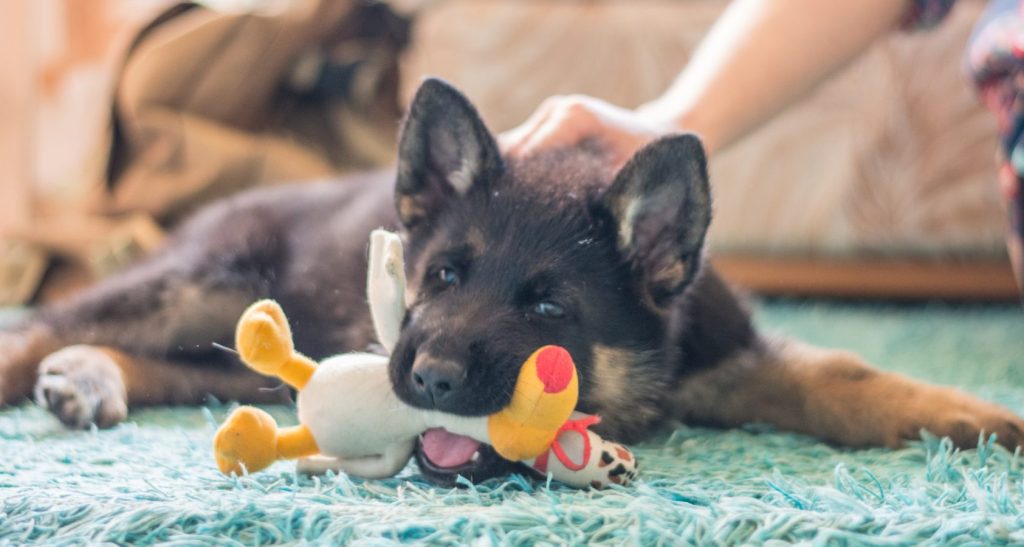
Play With A 4-Month-Old German Shepherd
While your pup might be rather young and only 4 months he’s still in the play mode almost all of the time. A German shepherd puppy is a very active dog, and he loves to romp and run around. If your pup is too tired, he’ll just curl up in a ball and fall asleep. So, when you play with your dog, it’s important to keep him active and tired. A tired dog is a happy dog! You can play with your dog in a variety of ways.
Toss a ball, and see who can get the ball back to their hands the fastest. You can also have your dog chase your hands, so that you can wrangle him in and give him belly rubs or scratches. There are many different ways to play with your German shepherd puppy, it just depends on what you and your dog enjoy the most.
3 Things to Actively Do with a 4 Month Old German Shepherd Puppy
When you have a 4 month old German shepherd puppy, you’ll want to keep in mind a few things that will help him grow up strong, healthy, and happy. These things to do with a 4 month old German shepherd puppy will also help you communicate with and understand your pup a lot better.
- Play with your dog when he’s tired – If your pup is a little bit tired from playing, you can gently massage his muscles to help him relax and fall asleep. This will help him grow strong muscles and bones, which will make him a healthy and happy adult!
- Exercise your dog with a dog treadmill or playpen – Exercising your German shepherd with a dog treadmill or playpen is a great way to tire him out and also keep him healthy. This can be done indoors or outdoors.
- Give him super healthy yet tasty treats – Feeding your German Shepherd healthy treats will help him/her grow to their full potential. It’s a great way to give them more energy and over all be a lot more playful and happy.
Training a 4 Month Old German Shepherd
As your pup grows up, you’ll want to teach him some basic obedience commands, like sit and come. This will help your dog respect you, which is especially important when he’s a young dog. In addition to obedience training, you can start training your German shepherd puppy to learn basic tricks, like how to roll over, fetch a ball, and other tricks that you and your dog will enjoy. These training techniques for a 4 month old German shepherd puppy will work with any dog. You can even use these techniques on your older dog, as long as you modify them according to your dog’s size and temperament.
Training a puppy is important to instil good habits and help avoid future problems. However, it’s not easy and is a process that takes time. Don’t get frustrated if it feels like the puppy is shrugging off the training. It’s just a process and your pup will get there. The more patience you have, the better your German shepherd will be.
- Be patient and consistent. Your German shepherd puppy won’t understand all of the commands you’re giving him/her right away. It’s important that you don’t get frustrated or shout at the pup. Instead, keep your voice calm and steady and don’t be afraid to be patient. You’ll be rewarded for doing so down the line.
- When training your German shepherd pup, give him/her a treat or toy to focus on. This will make it easier for your pup to focus on whatever you’re doing.
- Start off with small but important lessons. This way, you can build on your successes and avoid making mistakes.
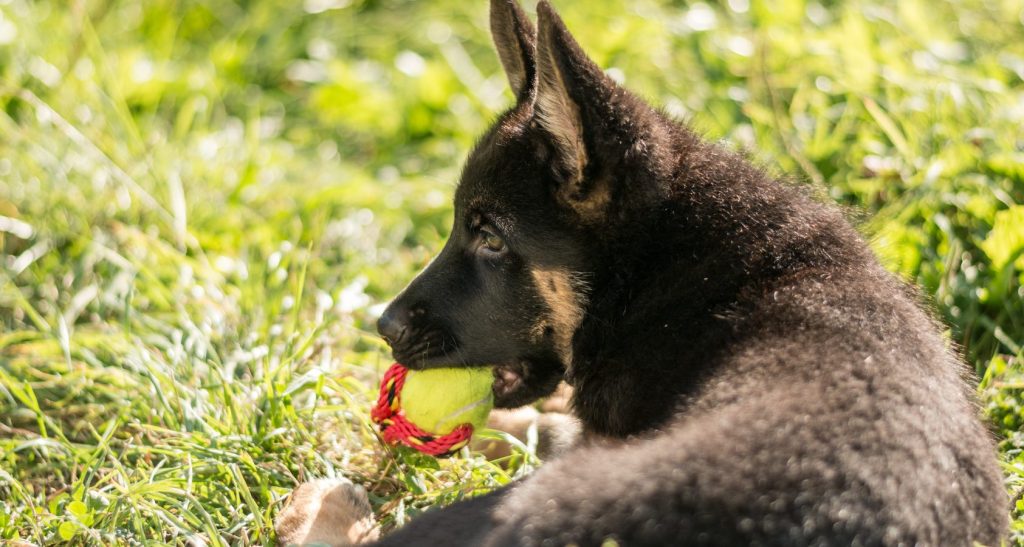
Care tips to help you along the way from 4 to 5 months:
- Make sure to get your German shepherd on a regular exercise routine. – This can help him fight off obesity and diabetes, as well as increase his confidence and self-esteem.
- Keep a close eye on your dog’s diet and feed him high-quality food. Make sure that he’s getting enough proteins and vitamins.
- If your 4-month-old German shepherd is getting too little exercise, we recommend hiring a dog walker or joining a dog agility class. This will help your dog get the exercise he needs while also giving him something to do while you’re busy with work or other commitments.
- Frequent drinks of water throughout the day as a dog’s body is about 60% water.
Bottom Line – 4 Month Old German Shepherds
German shepherds are some of the most intelligent dogs out there. They’re perfectly suited as service dogs because they’re so smart and trainable. This is why they’re such a good fit as a family dog. If you have the time and patience for it, raising a German shepherd is an amazing experience. They’re very active, intelligent dogs that require a lot of attention and exercise. They’re also very feisty and require a lot of grooming.
With a little consistency and careful training, a German shepherd is sure to become your best friend!
About The Author
I'm a content writer and researcher. But bottom line, I loveee animals. I had my first animal which was a guinea pig at age 8. Later had a bunny, dog and a lot, a lot of fish. Writing about what I know about pets will allow me to share my knowledge and love for them with everyone else. Dealing with dogs my entire life, I know a lot.

